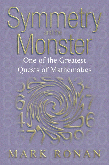Carmen, Royal Opera, April 2023
April 7, 2024A terrific opening of Covent Garden’s new Carmen. Olga Kulchynska made a seductive gypsy and Piotr Beczala a suitably weak but vocally strong and effortless Don José in this new production by Damiano Michieletto. The lighting beautifully conveyed the light and dark of Bizet’s opera — see my review in The Article.
Bluebeard’s Castle, English National Opera, March 2024
March 23, 2024Several years back the ENO produced Bartok’s wonderful one-act opera in a fine staging, but this semi-staging was more of a concert performance. The musical side was outstanding, and John Relyea gave a superb performance of the title character — see my review for The Article.
Jenufa, English National Opera, March 2024
March 15, 2024This opera marks the beginning of Janáček’s personal style, with a series of five operas in the standard repertoire. The ENO production is excellent, set in the grey times of post WW2 communism, and the orchestral performance was outstanding. See my review in The Article.
Death in Venice, Welsh National Opera, WNO, March 2024
March 9, 2024In Thomas Mann’s novella Der Tod in Venedig (Death in Venice) Gustav von Aschenbach, a great man of literature from Germany dies in the warmth of Southern Europe. Made into an extraordinary opera by Benjamin Britten, the 17 scenes create a sense of inevitability in what can be seen as a Greek tragedy — see …
See all Theatre Reviews




